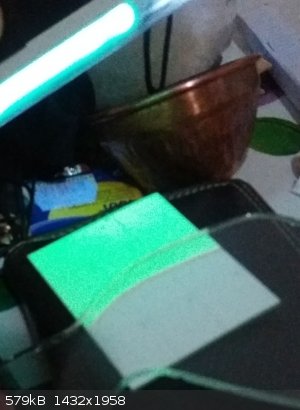alchemizt
Harmless

Posts: 36
Registered: 28-1-2019
Member Is Offline
|
|
DIY UV Visualisation chamber
I need a UV chamber for visualising TLC plates. Lab gear is really expensive in my country, so Id prefer to build my own chamber.
So firstly, I need to get bulbs or LEDs of specific frequencies right? I see 254nm used a lot in the labs. Why is this specific frequency used? I also
have seen most professional chambers let you change frequency. I see that 312 nm and 365 nm are used too. Can you find LEDs of these 3 frequencies
easily in electronics supply shops? Will fluorescent tubes also emit specific frequencies like the LEDs do, or do they emit a range of frequencies?
How many watts would I need? Is there anything else I need to take into consideration?
|
|
|
Sulaiman
International Hazard
    
Posts: 3722
Registered: 8-2-2015
Location: 3rd rock from the sun
Member Is Offline
|
|
The specific wavelengths are based on the emission spectrum of mercury vapour lamps.
400nm and above are visible light only
300-400nm lamps use borosilicate glass
245nm lamps have a quartz bulb to allow the passage of shorter wavelengths.
You should be able to use uv lamps as found in fake banknote detectors, manicurists curing lights etc.
If you want 245 nm etc. then there are germicidal lamps.
DO take extreme care to not expose your eyes to uv (uva, uvb and uvc)
CAUTION : Hobby Chemist, not Professional or even Amateur
|
|
|
Ubya
International Hazard
    
Posts: 1247
Registered: 23-11-2017
Location: Rome-Italy
Member Is Offline
Mood: I'm a maddo scientisto!!!
|
|
254nm is very common because aromatic and many others organic compounds absorb this wavelength.
Some TLC plates have a dye that fluoresces with 254nm light, if a compound that absorbs that wavelenght is present in your tlc streak, you'll see a
dark spot/halo.

Regular glass is opaque to this wavelength so you can't use it in the path of the light, but you can use it to shield watever you want from the deep
UV rays.
A note on normal UVC lamps (normal backlights don't emit these kind of wavelenghts), they don't just emit 254nm light, so as you can see in my
picture, even if there are streaks in that TLC plate, you can't see anything. To be able to see the streaks you need a 254nm pass filter, and that's
going to be the hard thing to get for this project.
I bought a 6w UVC bulb for 3 euros on ebay, but i still haven't found a cheap 254nm pass filter.
I've seen some on aliexpress, but they were small or the wrong shape, and not at all cheap (cheaper that a whole UV chamber ofc but since i always try
to go for the cheapest possible solution, i'm still looking around).
If you want multiple wavelengths available to your chamber you can use a germicidal UVC bulb with a 254nm pass filter and a bunch of 365nm LEDs (these
will work on many compounds that naturally fluoresce at this wavelength).
And a safety warning about UVC, never look at the bulb when on and don't expose your skin to the light in the chamber.
---------------------------------------------------------------------
feel free to correct my grammar, or any mistakes i make
---------------------------------------------------------------------
|
|
|
alchemizt
Harmless

Posts: 36
Registered: 28-1-2019
Member Is Offline
|
|
I found a handheld lamp for killing bacteria and viruses, these seem to be pretty available now with the Covid pandemia. It cost $40 though so I didnt
buy it. I'm going to keep looking.
|
|
|
Dr.Bob
International Hazard
    
Posts: 2750
Registered: 26-1-2011
Location: USA - NC
Member Is Offline
Mood: No Mood
|
|
If you are in the US, I have a variety of UV lamps, some single wavelenth at 254 and 265, and a few that do both. They would be between $60 and
$100, but are all nice quality ones. A good one is worth the use if you plan to do much TLC. The other most common visualization is just putting
the plate into a jar with some silica gel and iodine in it.
|
|
|